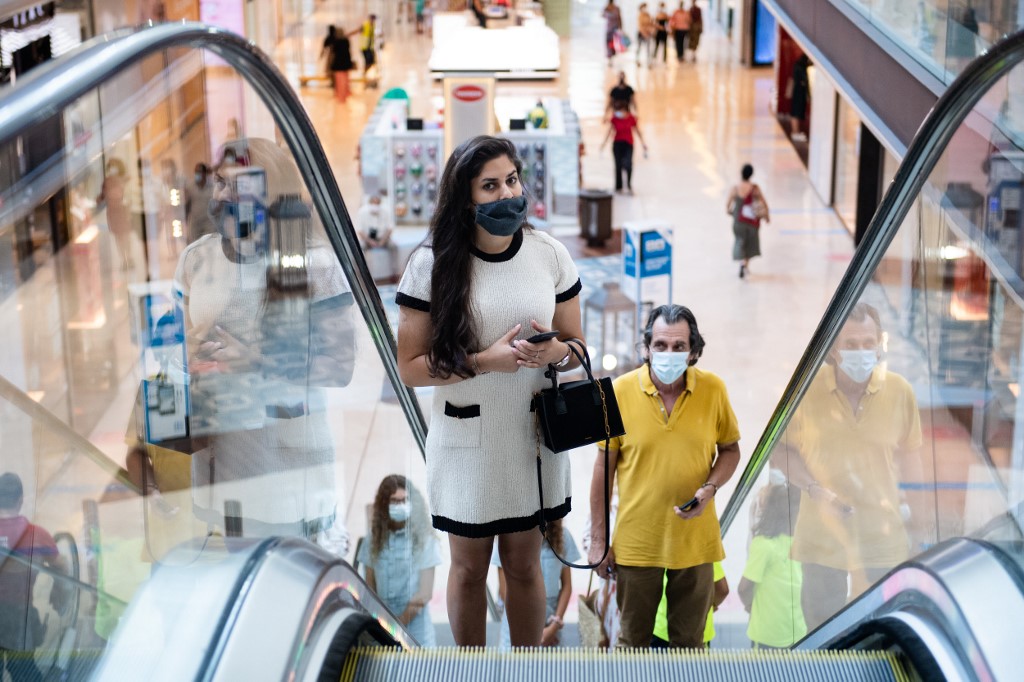WHO recommends masks indoors if ventilation poor

People wearing protective face masks due to the COVID-19 coronavirus pandemic, stand in escalators in “Les Terrasses du Port” commercial center in Marseille on July 20, 2020, as masks become mandatory in all indoor public spaces. (Photo by CLEMENT MAHOUDEAU / AFP)
The World Health Organization on Wednesday recommended wearing facemasks when indoors with other people, if the ventilation has been deemed inadequate, in an update to its COVID-19 guidance on masks.
The new recommendations apply in areas of known or suspected cluster or community transmission of the new coronavirus.
“WHO advises that the general public should wear a non-medical mask in indoor (eg shops, shared workplaces, schools) or outdoor settings where physical distancing of at least one meter cannot be maintained,” the new guidance says.
“If indoors, unless ventilation has been assessed to be adequate, WHO advises that the general public should wear a non-medical mask, regardless of whether physical distancing of at least one meter can be maintained.”
The UN health agency also urged people not to wear masks during vigorous physical activity, and not to use masks with valves, saying they bypassed the filtration function of the facemask.
Article continues after this advertisementIn its fourth update on mask guidance during the pandemic — the last was in August — the WHO called for wider use in healthcare settings, especially in areas plagued by infection clusters or community transmission.
Article continues after this advertisementIn such cases, the WHO recommended “universal masking for all persons (staff, patients, visitors, service providers and others) within the health facility (including primary, secondary and tertiary care levels; outpatient care; and long-term care facilities)”
It also called for the wearing of masks by inpatients when physical distancing of at least one meter cannot be maintained or when patients were outside of their care areas.
More generally, the WHO continued to advise anyone suspected of having COVID-19 or awaiting test results to wear a medical mask when around others.
As for face shields, WHO said they “provide a level of eye protection only and should not be considered as an equivalent to masks” when it came to protection against respiratory droplets.
The organization said however that if masks were not available, or if people had difficulty wearing a non-medical mask — for example people with cognitive, respiratory or hearing impairments — then face shields may be considered as an alternative.
“If face shields are to be used, ensure proper design to cover the sides of the face and below the chin,” the guidance said.
For more news about the novel coronavirus click here.
What you need to know about Coronavirus.
For more information on COVID-19, call the DOH Hotline: (02) 86517800 local 1149/1150.
The Inquirer Foundation supports our healthcare frontliners and is still accepting cash donations to be deposited at Banco de Oro (BDO) current account #007960018860 or donate through PayMaya using this link.